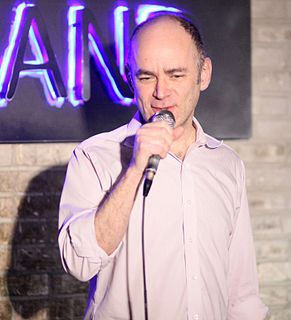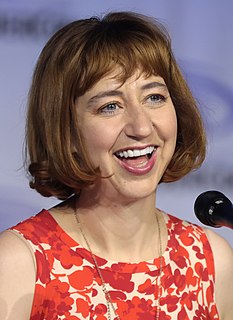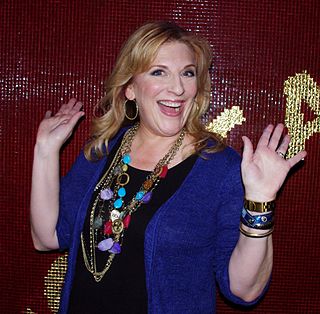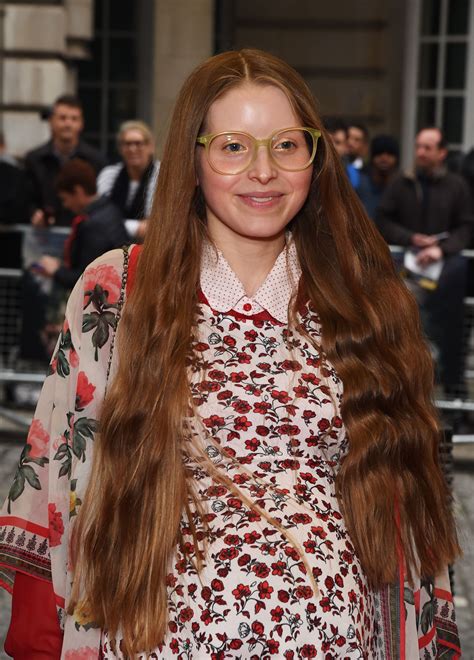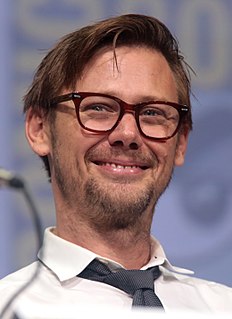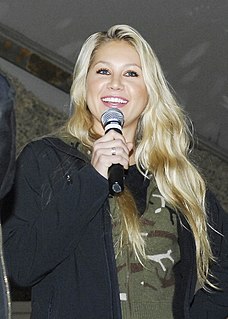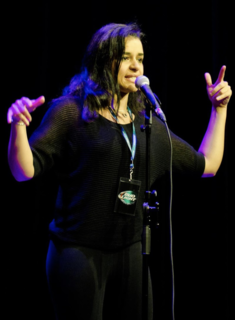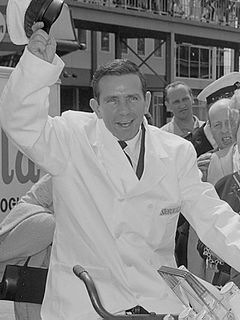A Quote by Simon McBurney
I feel that if you can play on the streets or in a comedy club, then in a theatre it's a doddle because you've got an audience.
Related Quotes
Performing comedy in San Francisco to begin with is pretty wild. You've got to - you've got the human game preserve to play off of. And it's a lot of great characters everywhere. You work off that, and then you play the rooms, and eventually you get to a point where you're playing a club that is a comedy club, with other comics.
They [Barnes Theatre Club] were a very good group, and for some reason when I finished the backstage thing, I just decided to that I should try to act. So I auditioned for Guys and Dolls and got a little tiny part as some Cuban dancer or something and then in the next play I got the lead part, and then I got my agent. So I owe everything to that little club.
I don't personally feel comfortable performing in a comedy club, mainly because as an audience member, I've never enjoyed that experience. It feels a little bit theme-park-ish to me, in that it's a club whose product is comedy. I find that weird. It's like those specialty chocolate stores, where everything is chocolate. It's too specific. I like going somewhere that specializes in variety.
The problem with a lot of comedy clubs is not that they are a comedy club; it's just the cheesy way they're presenting themselves. That's why a lot of people have a problem with them. If you're a relatively unknown comedian, you can play at a comedy club, you might play to hundreds of people every night. But if you try to make a concert event out of it, and try to play a rock club or something, where you might play to 10 people or no people. And the flipside of that is, that's also a great thing, to play to people who are your fans. Some people are too hard on the comedy clubs.
If you tell the reader it's funny, then the audience is like an audience at a stand-up comedy club and they expect you to be funny, and if you're not, they notice. Whereas if you read a regular op-ed about Israel or the family or medicine, you're not starting with the assumption that you're supposed to laugh.
With theatre, you can interpret the most complex play on stage for it have meaning to an audience because you're dealing in images, you're dealing in action, you can use different idioms to interpret and clarify something which is obscured in the reading and of course there are different kinds of play, there are mythological plays, there are what I call the dramatic sketches, direct political theatre which is virtually everybody, but I find that you can use the stage as a social vehicle, you know, which any kind of audience.




